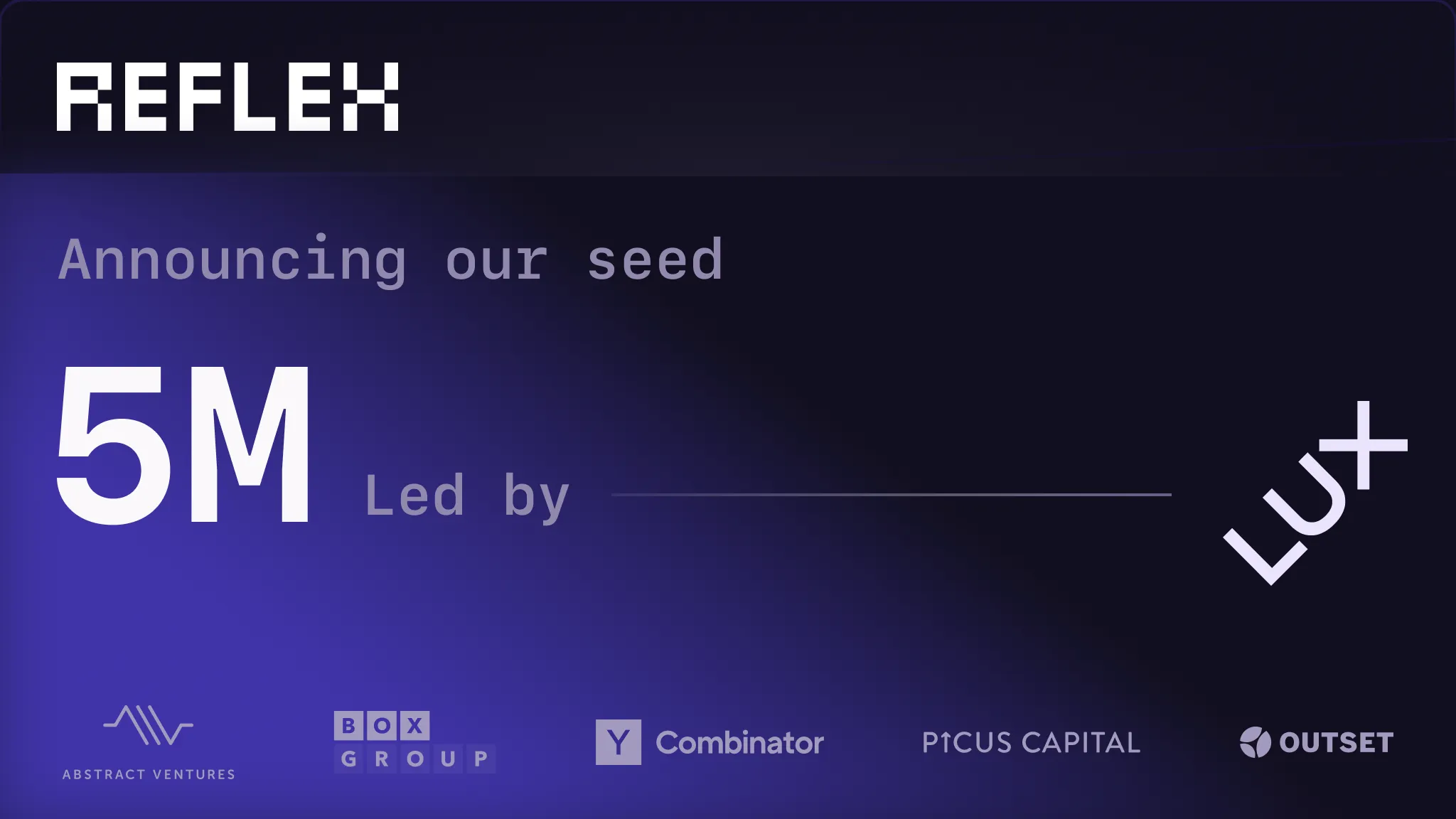
We’re thrilled to announce Reflex (formerly Pynecone - more on that in a bit!) and the $5 million we raised in seed funding led by Lux Capital with participation from Abstract Ventures, Box Group, Y Combinator, Picus Capital, and Outset Capital.
Additionally, we are thrilled to bring on some fantastic founders as angel investors, including Qasar Younis, (Cofounder and CEO of Applied Intuition), Jack Altman, (Cofounder and CEO of Lattice), Paul Copplestone, (Cofounder and CEO of Supabase), Matt Kraning, (CTO, Cortex at Palo Alto Networks), Alfredo Andere, (Cofounder and CEO of Latch Bio), and others.
With this investment, we will accelerate the development of our open-source ecosystem and release our hosting service optimized for usability and performance. This will allow our users to build powerful Reflex apps in minutes and deploy them with a single command."
Web apps are the most common way for developers to share their ideas. But even for skilled engineers, without experience in traditional frontend tools like Javascript or React, making a web app can be overwhelming and time-consuming. And once their app is created, deploying it is often a nightmare.
Over the years, many low-code and no-code frameworks have tried to make web development more accessible, but they all have limitations and graduation risks compared to standard web frameworks. With Reflex, we have created a framework that lets developers leverage their existing Python skills to build and deploy apps without compromising on flexibility or customization.
Reflex allows you to make anything from a small data science project to a full-scale, multi-page web app. Since Reflex apps compile down to traditional frontend frameworks, there's no constraint on the type of apps you can build. Instead of reinventing the web development ecosystem, we're trying to make the existing ecosystem more accessible.
Since our launch in December 2022, our community has grown to 5,000 monthly developers making 14,000 Reflex apps, 60+ contributors to our GitHub project, and over 1,500 members in our Discord.
We've also seen a broad range of skill levels and use cases, from software engineers at large companies building internal apps to startups building their main customer-facing apps. And it’s not just tech companies: Reflex is used in a wide range of industries ranging from biology and quant finance to manufacturing.
As Pynecone, we participated in Y Combinator’s Winter 2023 cohort with the goal of making an open-source framework for web apps in pure Python. We formally rebranded from Pynecone to Reflex to align with our goal of creating a platform that is intuitive and simple to learn, yet flexible and robust enough to handle any use case. As we grow, our mission is to make our platform the easiest way to build and deploy web apps.
We have three core goals for the next stage of our company.
- Reflex Hosting: The open-source project is only half of the vision. In the upcoming months, we will build and release a beta of our hosting service so users can quickly deploy, scale, and share their apps. Our primary areas of focus for our hosting service are security, reliability, and optimizing app performance by running our app close to the user on the edge.
- Rapid Onboarding: Our goal is to be the easiest way to build web apps. We're working on adding base app templates, higher-level components, and built-in styles so developers can go from an idea to a working app as fast as possible.
- Core Framework: We will continue to grow our open-source framework to have feature parity with traditional front-end frameworks. This includes adding more complex styling methods like detailed animations and improvements to our core component library.
A more detailed roadmap of what’s coming next can be found here. Stay tuned for updates on our progress!
-- Reflex Team

